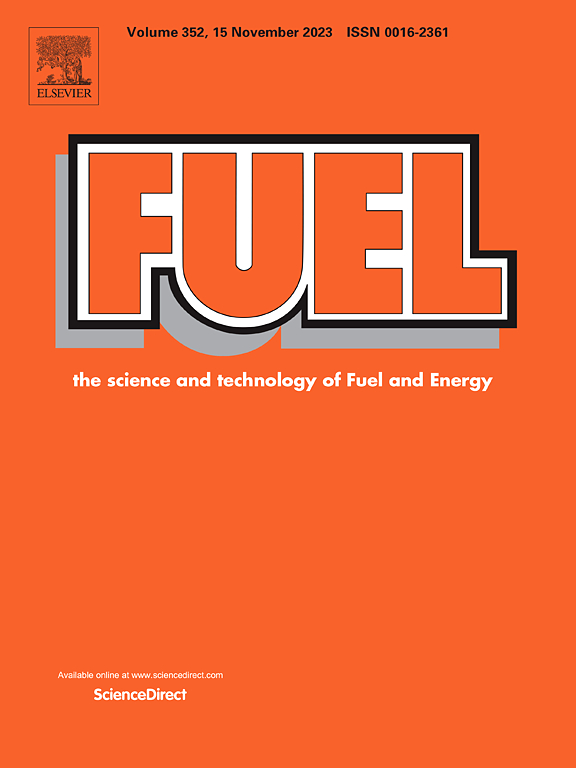由许多离散凝聚相颗粒组成的al - li基合金火焰的燃烧和辐射特性
IF 7.5
1区 工程技术
Q2 ENERGY & FUELS
引用次数: 0
摘要
在红外诱饵配方中使用合金作为可燃成分,可以增强其红外辐射特性,从而使光谱输出更接近实际保护目标的光谱输出。本文研究了两种al - li基合金和三种mg - al基合金用于红外诱饵的配方,并对其燃烧行为和红外辐射特性进行了研究。结果表明:al - li基合金的中远红外辐射强度比在3.0 ~ 3.5之间,mg - al基合金的中远红外辐射强度比在4.5 ~ 5.2之间。利用高速摄影、高速红外成像、辐射测量和x射线衍射(XRD)分析了al - li基合金中远红外辐射比较低的机理。与mg - al基合金相比,那些基于Al-Li的合金产生的燃烧产物主要是高温凝析物。此外,铝锂合金在较低的温度下燃烧。特别是Al-Si-Li合金的燃烧产物在远红外波段表现出特征发射,从而显著提高了该光谱区域的辐射比例。本文章由计算机程序翻译,如有差异,请以英文原文为准。
Combustion and radiation characteristics of the flame of an Al-Li-based alloy composed of many discrete condensed phase particles
The use of alloys as the combustible component in infrared decoy formulations enhances their infrared radiation characteristics, resulting in a spectral output that more closely aligns with that of actual protected targets. In this study, formulations for two Al-Li-based and three Mg-Al-based alloys were developed for application in infrared decoys, and their combustion behavior and infrared radiation characteristics were investigated. The results indicate that the mid-to-far infrared radiation intensity ratio for the Al-Li-based alloys ranges from 3.0 to 3.5, whereas that for the Mg-Al-based alloys spans from 4.5 to 5.2. The mechanism responsible for the lower mid-to-far infrared radiation ratio of the Al-Li-based alloys was analyzed using high-speed photography, high-speed infrared imaging, radiometry, and X-ray diffraction (XRD). In contrast to the Mg-Al-based alloys, those based on Al-Li produce combustion products that are primarily high-temperature condensates. Furthermore, Al-Li alloys combust at a lower temperature. The combustion products of the Al-Si-Li alloy, in particular, exhibit characteristic emission in the far-infrared band, thereby significantly enhancing the radiant proportion in this spectral region.
求助全文
通过发布文献求助,成功后即可免费获取论文全文。
去求助
来源期刊

Fuel
工程技术-工程:化工
CiteScore
12.80
自引率
20.30%
发文量
3506
审稿时长
64 days
期刊介绍:
The exploration of energy sources remains a critical matter of study. For the past nine decades, fuel has consistently held the forefront in primary research efforts within the field of energy science. This area of investigation encompasses a wide range of subjects, with a particular emphasis on emerging concerns like environmental factors and pollution.
 求助内容:
求助内容: 应助结果提醒方式:
应助结果提醒方式:


